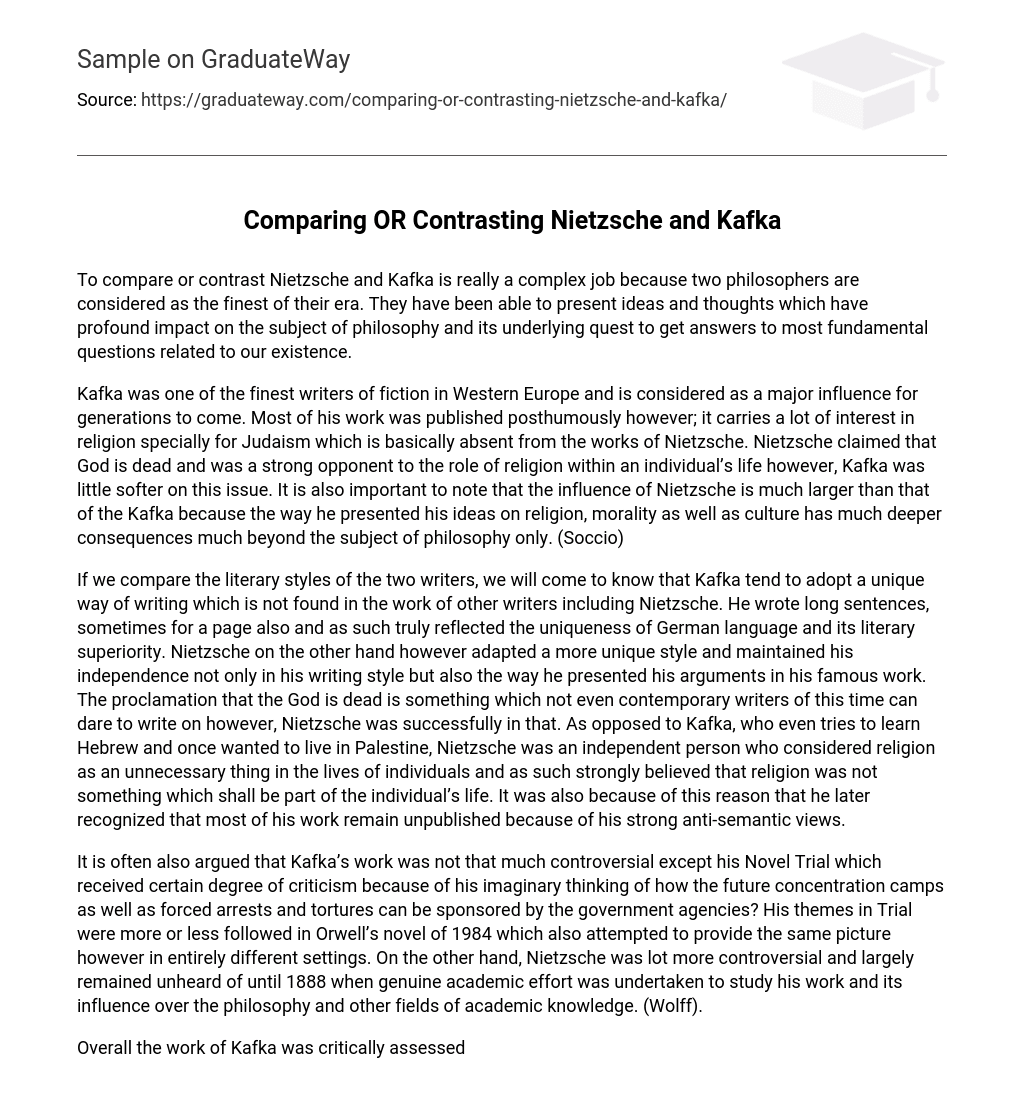Comparing or contrasting Nietzsche and Kafka is a complex task because both philosophers are considered to be the finest of their era. They presented ideas and thoughts that had a profound impact on the subject of philosophy and its underlying quest to find answers to the most fundamental questions related to our existence.
Kafka was one of the finest writers of fiction in Western Europe and is considered a major influence for generations to come. Most of his work was published posthumously; however, it carries a lot of interest in religion, especially Judaism, which is basically absent from the works of Nietzsche. Nietzsche claimed that God is dead and was a strong opponent to the role of religion within an individual’s life. However, Kafka was a little softer on this issue. It is also important to note that the influence of Nietzsche is much larger than that of Kafka because the way he presented his ideas on religion, morality, and culture has much deeper consequences beyond just philosophy.
If we compare the literary styles of Kafka and Nietzsche, we will notice that Kafka tended to adopt a unique way of writing that is not found in the work of other writers, including Nietzsche. He wrote long sentences, sometimes spanning an entire page, which truly reflected the uniqueness of the German language and its literary superiority. On the other hand, Nietzsche adapted a more distinct style and maintained his independence not only in his writing but also in how he presented his arguments in his famous works.
The proclamation that God is dead is something that even contemporary writers today may hesitate to write about; however, Nietzsche was successful in doing so. Unlike Kafka who attempted to learn Hebrew and once wanted to live in Palestine, Nietzsche was an independent person who considered religion unnecessary for individuals’ lives. As such, he strongly believed that religion should not be part of an individual’s life. It was also because of this reason why he later recognized that most of his work remained unpublished due to his strong anti-Semitic views.
It is often argued that Kafka’s work was not controversial, except for his novel The Trial, which received criticism due to its depiction of government agencies sponsoring future concentration camps, forced arrests, and torture. The themes in The Trial were also present in Orwell’s 1984, albeit in a different setting. In contrast, Nietzsche was much more controversial and largely unknown until 1888 when genuine academic efforts were made to study his work and its influence on philosophy and other academic fields (Wolff).
Overall, Kafka’s work has been critically assessed as focusing on modernism and magical realism. In contrast, Nietzsche’s work largely focused on religion, morality, and perspectivism. The basic orientation of both philosophers is therefore largely different, and the focus of their writings was also divergent in nature.
Works Cited
- Soccio, Douglas J. Philosophy in Context: A Historical Introduction. London: Wadsworth Publishing Co, 2006.
2. Wolff, Robert Paul. Ten Great Works of Philosophy. London: Signet Classic, 2002.





